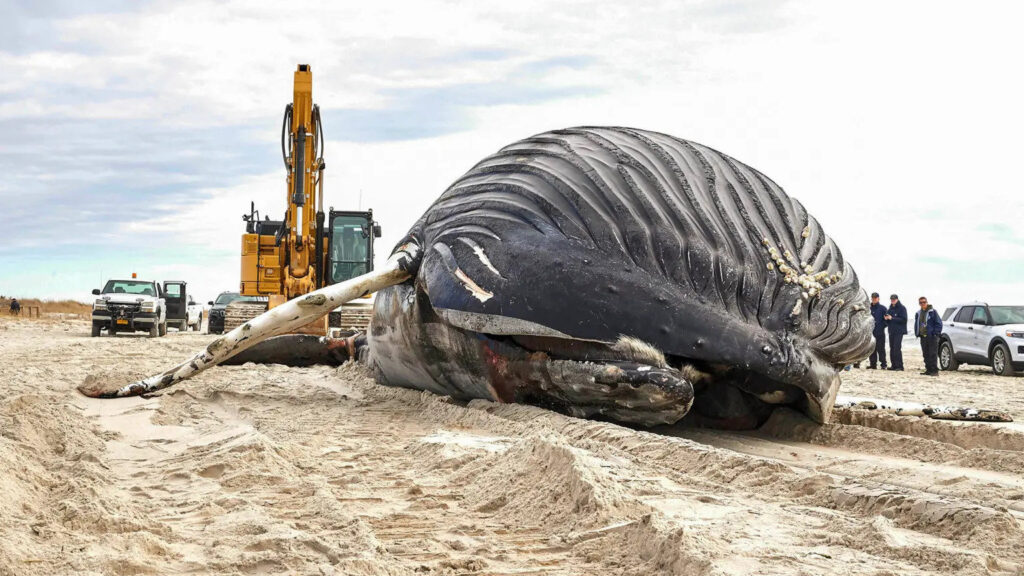Campaign to discredit opposition to wind, solar has financial connections to renewable advocates

Kevin Killough
Just the News
Media outlets and nonprofits claiming that local opposition to wind and solar projects is funded by oil companies are themselves funded by anti-fossil fuel activist groups promoting the wind and solar industry.
Local opposition has become a formidable force in resisting the growth of wind and solar power. Opponents have concerns including the impact on whales by offshore wind development, the gobbling up of limited agricultural land by solar companies, the degradation of grid reliability and the high costs of renewable energy. As the projects spread across rural America and along the nation’s coasts, residents of communities are forming grassroots opposition to the projects.
In response to the growing opposition, some researchers and media outlets are engaged in a campaign to portray these grassroots efforts as being funded by oil companies who are trying to stop competition from other energy sources. Opponents of wind and solar projects say the effort is a smear campaign that is itself connected to the renewable energy industries.
“What they do is they take the information we’re getting to people, and they spin it. And then they give their own little explanation, which is verbatim what the wind companies say,” Mandy Davis, president of the National Offshore-wind Opposition Alliance (NOOA), told Just the News.
Hit pieces
A study by Columbia University’s Sabin Center for Climate Change Law published in June concluded that local opposition is becoming the primary impediment to the renewable energy industry’s ability to build out wind and solar farms across the country.
Energy expert Robert Bryce maintains a database of wind and solar projects canceled in the U.S., most often as a result of community opposition. In 2014, there was a single wind project canceled. So far in 2024, the database counts 739 such projects scrapped.
The National Offshore-wind Opposition Alliance formed to give disparate local community groups along the East and West coasts more cohesion in the opposition to offshore wind. Davis, who is based in California, said that they’ve been successful in getting their message out – and Davis is a former advertising executive – but the media were much more hostile when she first started promoting her perspective on the issue.
“The media that we were getting were people that were doing hit pieces. Now we are getting media exposure in all of the local media and not as many hit pieces. And at least some of it is a little more balanced, and some of it is actually kind of sort of in our corner,” Davis said.
While Davis is having success with outlets in California, other media outlets promote the idea that the hundreds of communities across the country who object to wind and solar projects for a variety of reasons are just carrying out the goals of oil and gas companies.
ProPublica recently published a so-called hit piece on solar opposition in Knox County, Ohio. The article, “Fossil Fuel Interests Are Working to Kill Solar in One Ohio County,” was produced in a partnership with Floodlight and Columbia University’s Tow Center for Digital Journalism. It’s one of many articles that have portrayed the opposition to solar in Ohio as being a conspiracy of oil interests, a theory that was originally spread by the “Energy News Network,” a publication that advocates for the wind and solar industry.
The theory focuses on the Knox Smart Development, which has helped organize opposition to solar projects in Ohio. Its spokesperson worked at Ariel Corporation 20 years ago, according to Propublica. Ariel manufactures compressors used in the natural gas industry, and it’s the largest employer in the county. A former executive of Ariel, Tim Rastin, provided funding to Knox Smart Development, and two other former employees of Ariel are involved in it. Rastin also heads The Empowerment Alliance, which advocates for natural gas as an affordable, reliable energy source.
Neither Ariel or The Empowerment Alliance responded to requests for comment on this article.
Independence
The ProPublica article refers to community concerns about renewable energy as “dubious claims,” but it makes no attempt to address the issues.
According to ProPublica, the main concerns of renewable opponents are that China will use solar panels to invade, that they’re toxic, and that the projects depress home values. A Lawrence Berkeley National Laboratory (LBNL) survey found that the main concerns communities have with renewable projects are visual blight, property values, and loss of agricultural land. While ProPublica dismisses concerns about property values as “dubious” without any source to support that statement, research by the LBNL and a University of Rhode Island study by economists found the concern about property values is valid.
The ProPublica reporters weave a narrative that the opposition to solar in Knox County is a concoction of the oil and gas industry. Missing from the article, however, is any mention that the three organizations that produced the report receive funding from organizations that advocate for the renewable energy industry and the elimination of fossil fuels.




